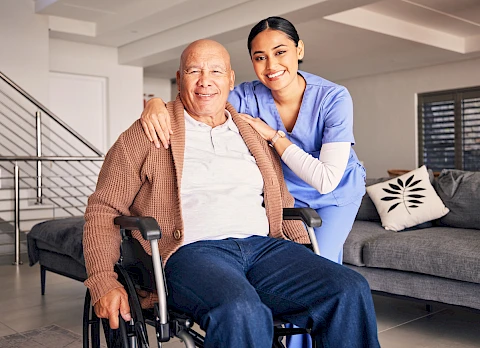
Life experiences, including those from military service or traumatic events, can lead to post-traumatic stress disorder or PTSD in older adults. Understanding how PTSD can cause secondary health conditions in seniors is essential for their well-being. In honor of National PTSD Awareness Month, it's time to explore how PTSD influences other health issues and complicates treatment and care.
PTSD in Seniors
PTSD in seniors can stem from various causes, including war experiences, loss of loved ones, or accidents. While PTSD can manifest at any age, seniors may exhibit unique symptoms. These can include increased withdrawal, difficulty sleeping, or a heightened startle response. Recognizing PTSD in our senior loved ones is crucial, as it often goes undiagnosed, leaving them without the support they need.
Secondary Health Conditions Linked to PTSD
PTSD in seniors can lead to or worsen other health problems, both mental and physical. Mental health issues such as depression and anxiety often accompany PTSD, with seniors experiencing feelings of loneliness or hopelessness. PTSD can contribute to cognitive decline, making memory issues more prevalent in older adults.
Physical health complications are also common among seniors with PTSD. They are at higher risk for cardiovascular problems, as stress and anxiety can worsen heart conditions, posing serious health threats. Chronic pain and fatigue are also frequent issues, with tension in the body leading to persistent aches and exhaustion.
PTSD can also impact existing health conditions. It can worsen chronic illnesses like diabetes and arthritis, making symptoms more difficult to manage. Seniors with PTSD may also have a reduced immune function, increasing their vulnerability to infections and illnesses.
Complexity in Treatment and Care
Managing PTSD and associated secondary conditions in seniors can be challenging. Diagnosing multiple health issues at once is complex, as symptoms often overlap. A holistic approach is crucial, focusing not just on physical symptoms, but mental and emotional well-being too.
Caregivers can help in this approach. Supporting seniors with PTSD requires understanding and patience. Encouraging healthy routines and facilitating professional help go a long way in helping seniors manage their condition.
Encouragement to Seek Professional Help
For seniors and their caregivers affected by PTSD, consulting healthcare professionals is paramount. Doctors and mental health specialists can provide tailored treatment plans, offering guidance on managing multiple health conditions together.
Various resources and support networks are available. National and local organizations provide information and aid, ensuring that seniors and their caregivers do not have to face these challenges alone.
Senior Helpers North-Central OC Supports Seniors With PTSD
Addressing PTSD and its secondary health conditions in seniors is of utmost importance. With proper recognition and care, seniors can lead fulfilling lives, even while managing PTSD and its complications. Taking action is essential. If you or someone you know is grappling with PTSD, consider reaching out to professionals for help.
For those in Yorba Linda, Fullerton, Anaheim, Anaheim Hills, and La Habra, Senior Helpers North-Central OC is here to support you. Contact us today to learn more about our services and how we can assist your senior loved ones in leading healthier lives.